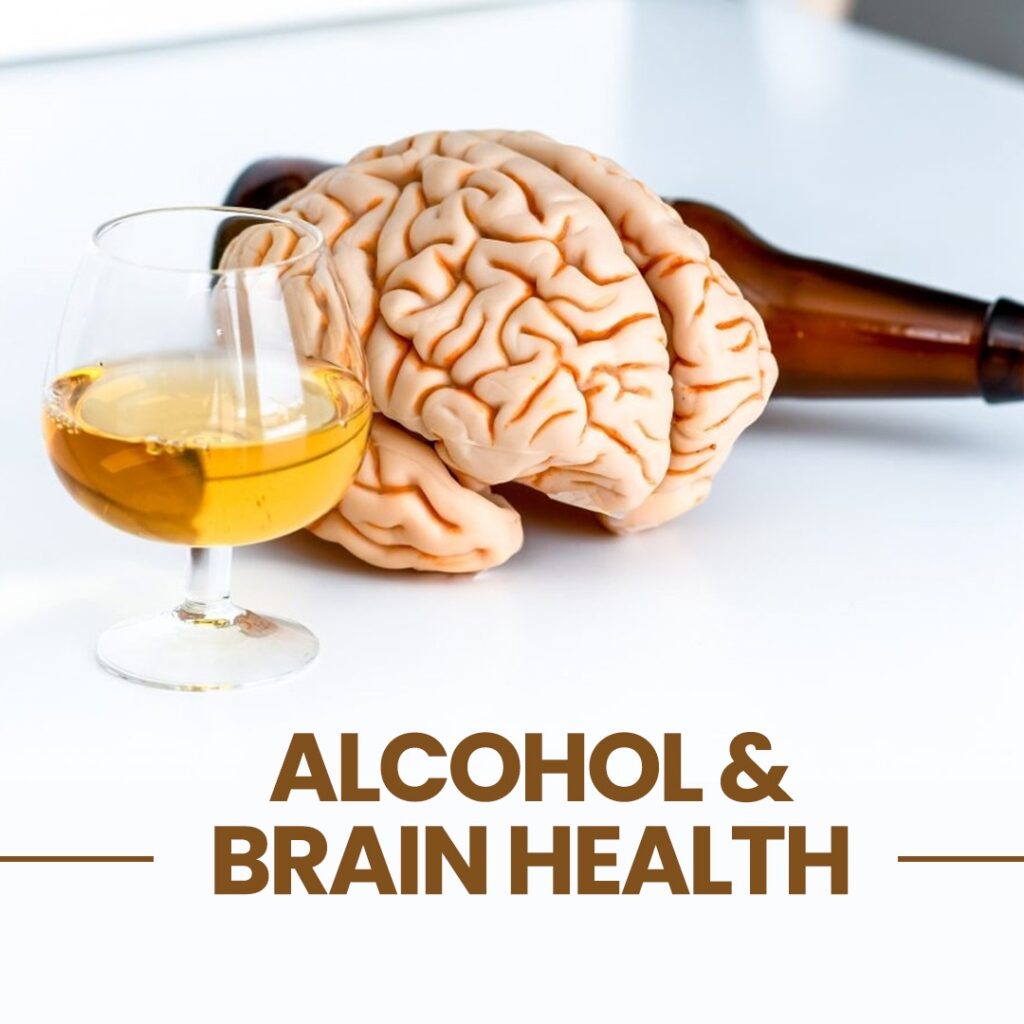
Discussion on consumption of alcohol and its effects on overall health has always been a hot topic among people. As a general opinion, we all know alcohol can cause cancer, liver disease, kidney problems and even heart disease. But one aspect that is rarely talked about is the impact alcohol has over our brain. Surely people enjoy the way alcohol makes them feel high,but it does have damaging effects on the brain.
There are multiple ways alcohol can damage your brain, for example external damage during the period of intoxication; injuries and falls or the direct damage from alcohol consumption without any external damage. In this blog we will be particularly talking about the brain damage we face from the toxicity of alcohol and its metabolites and how it alters our brain function and structure.
A cohort study in Britain found that even moderate drinking is associated with shrinkage in areas of the brain involved in cognition and learning. Many other studies have also found loss of grey matter volume. But what is grey matter?
GREY MATTER: Central nervous system is made up of both- grey and white matter. Grey matter basically refers to the areas of brain that contains a large number of neurons and makes up the outer most layer of the brain. It plays an essential role in our day-to-day functioning. The grey matter throughout the central nervous system allows enables individuals to control movement, memory, and emotions. Different areas of the brain are responsible for various functions, and grey matter plays a significant role in all aspects of human life.
It allows people to control their motor movements, our body’s movements to perform daily tasks, and it also allows us to receive sensory signals from our environment. Grey matter also plays important cognitive and mental health roles.
Alterations in grey matter volume have been linked to emotional dysregulation, ADHD (Attention Deficit Hyperactivity Disorder) in children and many diseases like Alzheimerdiseases, Parkinson’s disease, and many other problems too. Alteration in grey matter volume can also cause serious depressive disorders.
Now there are multiple factors that can cause reductions in grey matter volume. This includes, increasing age, poor lifestyle, certain drugs, alcohol use, etc.
ALCOHOL AND GREY MATTER VOLUME: Multiple MRI studies have shown that even in people who consume moderate amounts of alcohol have a negative impact on their grey matter volume (reduction of grey matter volume) and overall brain structure.
A study from Britain found that those who had the equivalent of four or more drinks a day had almost six times the risk of hippocampal shrinkage as did nondrinkers, while moderate drinkers had three times the risk.
Here are the conclusions from that study:
ALCOHOL AND AGING: Apart from this, alcohol consumption can also increase the aging of brain. Studies have shown alcohol consumption is associated with increased aging of the brain compared to the actual age.
These effects are more significant in people who consume high amounts of alcohol or those who consume alcohol regularly, but these effects are also seen in those who consume moderate to small amounts of alcohol.
ALCOHOL METABOLISM AND ACETALDEHYDE: Along with this, it is important to know how alcohol is metabolized. Alcohol is metabolized into acetaldehyde which is a toxic metabolite linked to cardiac myopathy, cancer, neural degeneration, cell damage and cytotoxicity by inducing DNA malfunction and so many other negative effects that can contribute to multiple diseases.
MISCONCEPTION: Moderate amounts of alcohol have a positive effect on our health.
SCIENCE: Even moderate amounts of alcohol is associated with reduction in grey matter volume, increased risk of cancer, heart attack, liver damage, etc.
5 TIPS FOR IMPROVING GREY MATTER VOLUME AND BRAIN HEALTH:
- Eliminating alcohol: Studies have shown that eliminating alcohol can recover the brain volume to some extent.
- Regular exercise
- Engaging in activities that challenge your brain, like solving puzzles, math problems, reading and learning new thing like a new language or anything that challenges your brain.
- Working on your nutrient deficiencies, being deficient in nutrients can negatively impact your brain health.
- Reducing stress and practicing meditation or doing activities that relax your brain like exercise or dance or music, basically anything that makes your brain feel relaxed can further help you improve your brain health.
References:







